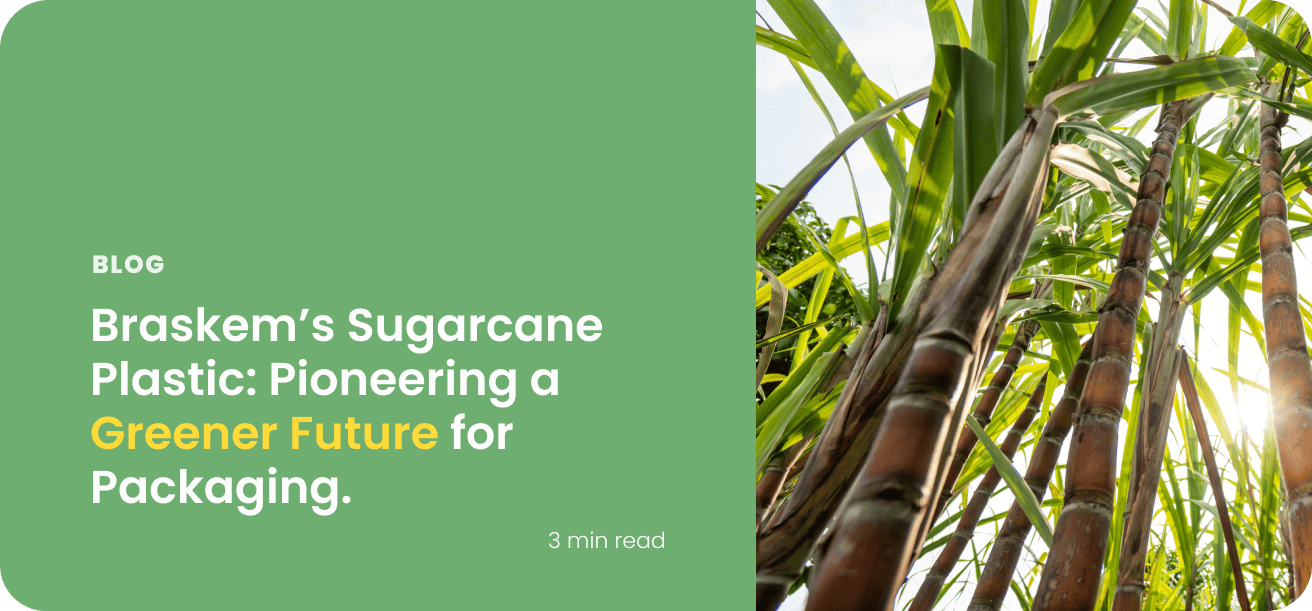Plant-Based Plastics
Braskem’s Sugarcane Plastic: Pioneering A Greener Future for Packaging
Plastic pollution has become a growing concern in recent years, as the adverse effects of plastic waste on our environment become increasingly evident. Traditional petroleum-based plastics are non-biodegradable and can take hundreds of years to decompose, resulting in significant environmental damage. As the world looks for eco-friendly alternatives, Braskem’s sugarcane plastic emerges as a groundbreaking solution to address this global issue.
What is Braskem’s Sugarcane Plastic?
Braskem, a leading Brazilian petrochemical company, has developed a revolutionary bio-based plastic made from sugarcane. This innovative material, also known as “green polyethylene,” is derived from ethylene made from sugarcane ethanol. Sugarcane plastic offers an environmentally friendly alternative to traditional petroleum-based plastics, boasting similar properties and performance while substantially reducing its carbon footprint.
How is Sugarcane Plastic Produced?
The process of creating sugarcane plastic begins with harvesting sugarcane, a renewable resource that absorbs carbon dioxide from the atmosphere as it grows. The sugarcane is then crushed to extract its juice, which is fermented and distilled to produce ethanol. This ethanol undergoes a dehydration process to create ethylene, which is then polymerized to form green polyethylene. The resulting material can be processed and molded using the same equipment and techniques used for conventional plastics, allowing for seamless integration into existing manufacturing processes.
Environmental Benefits of Sugarcane Plastic
- Reduced Carbon Footprint: Sugarcane plastic helps reduce greenhouse gas emissions, as the sugarcane used in its production absorbs CO2 from the atmosphere during its growth cycle. In fact, for every ton of green polyethylene produced, 3.09 tons of CO2 are captured and stored, making it a carbon-negative material.
- Renewable Resource: Sugarcane is a renewable resource that can be cultivated annually, ensuring a sustainable supply of raw materials for sugarcane plastic production.
- Recyclability: Braskem’s sugarcane plastic is fully recyclable and can be processed alongside traditional petroleum-based plastics, contributing to a circular economy in the plastic industry.
- Versatility: Sugarcane plastic can replace conventional plastics in various applications, including packaging, automotive parts, and consumer goods, without compromising product quality or performance.
Conclusion – Where to Get Sugarcane Plastic Containers
Braskem’s sugarcane plastic represents a significant stride towards a more sustainable future for the plastic industry. By utilizing renewable resources and reducing greenhouse gas emissions, this innovative material offers an eco-friendly alternative to traditional plastics without sacrificing performance or versatility. As companies and consumers become more environmentally conscious, the adoption of sugarcane plastic and other bio-based materials is expected to increase, helping to mitigate the negative impacts of plastic pollution on our planet.
To discover a greener alternative for your business with sugarcane plastic containers, visit earthwisepackaging.com and explore our BioMax™container selection, offering eco-friendly, high-performance packaging solutions made from Braskem’s innovative sugarcane plastic. Choose sustainability without compromising quality and make a positive impact on our planet today.

